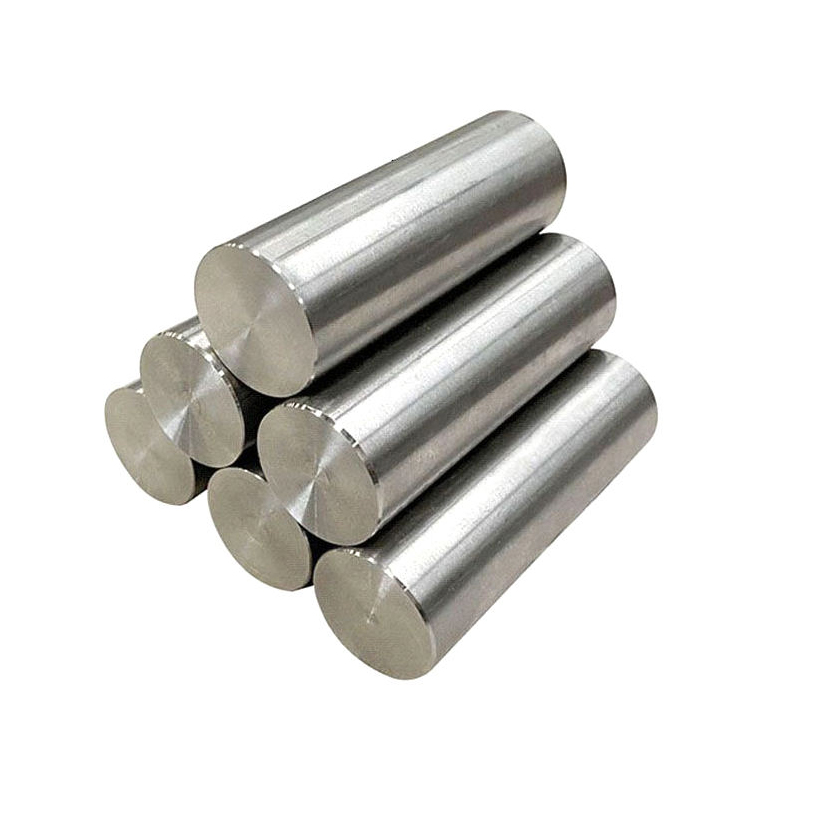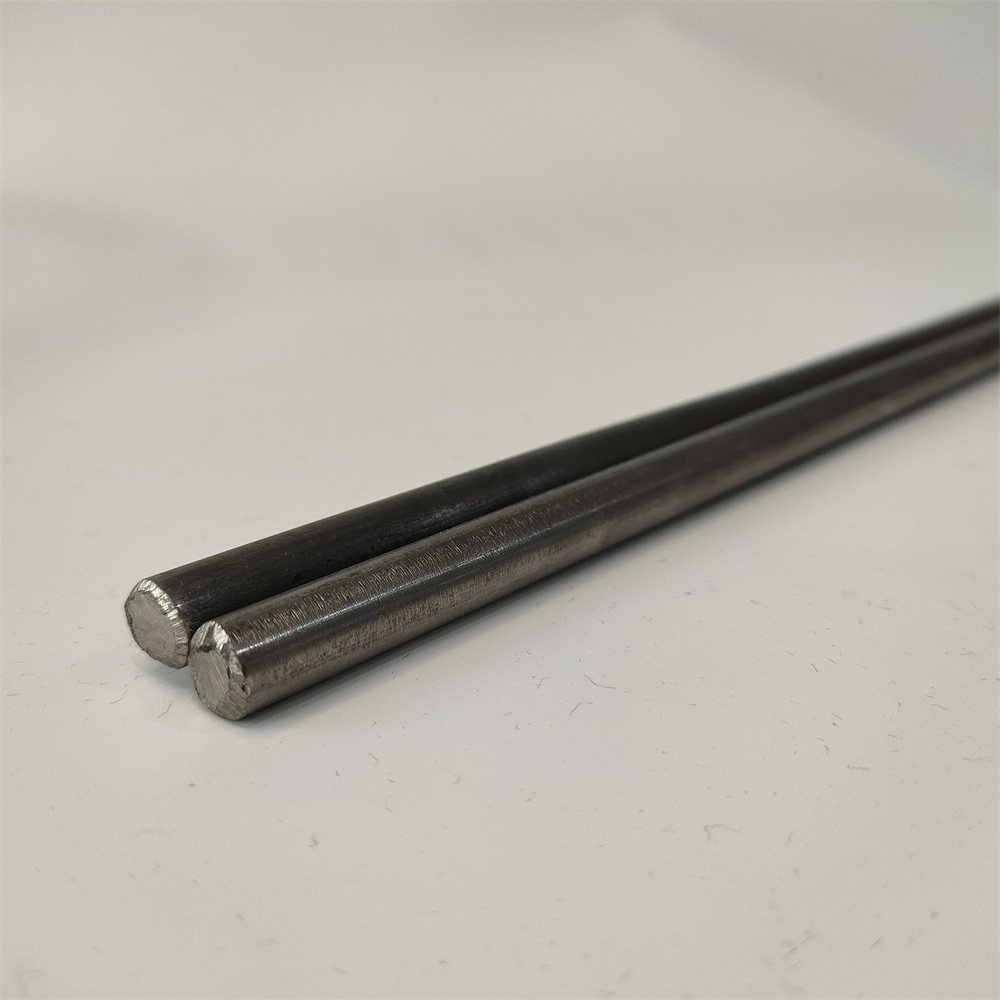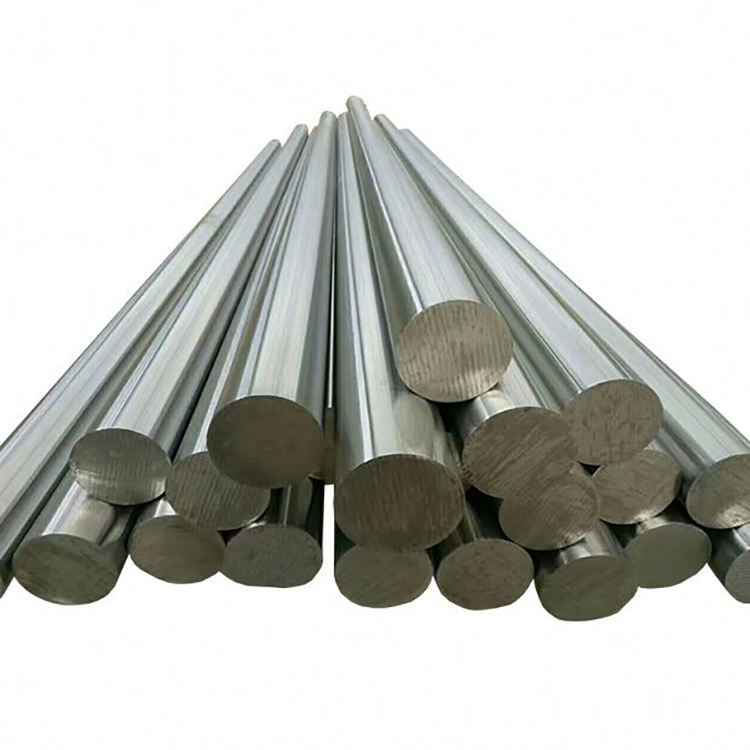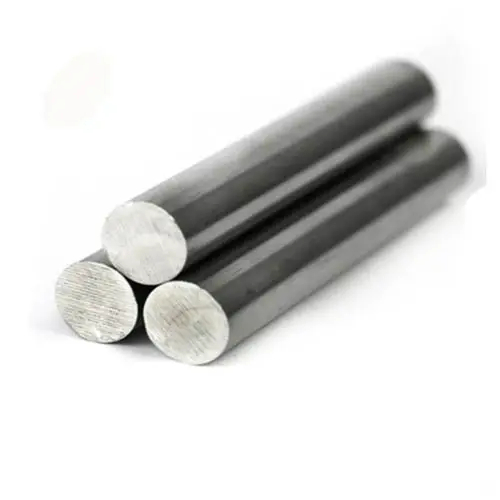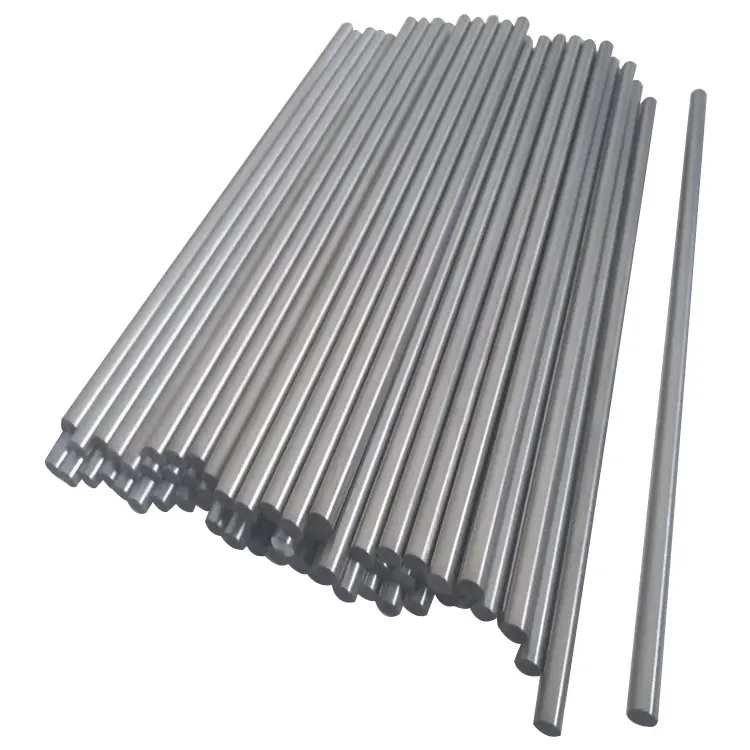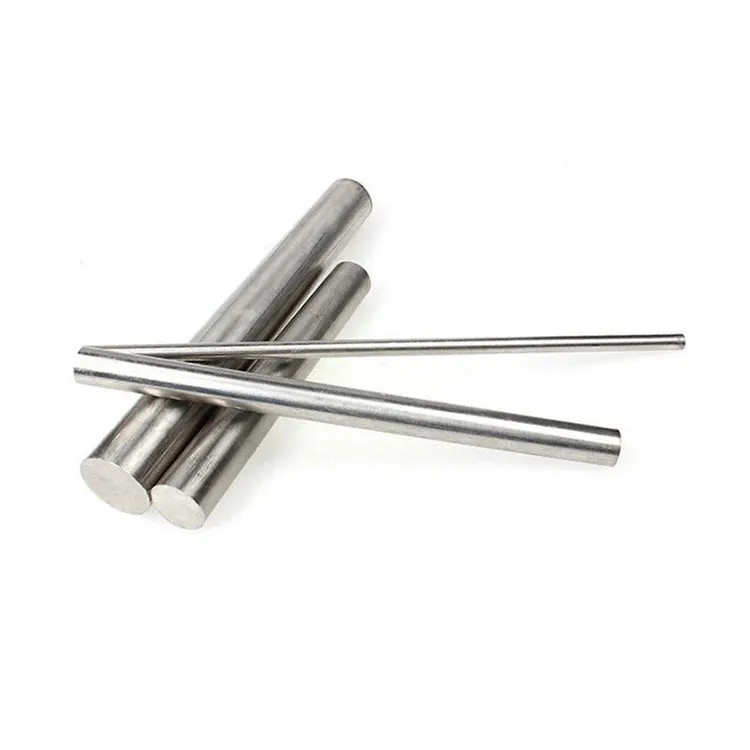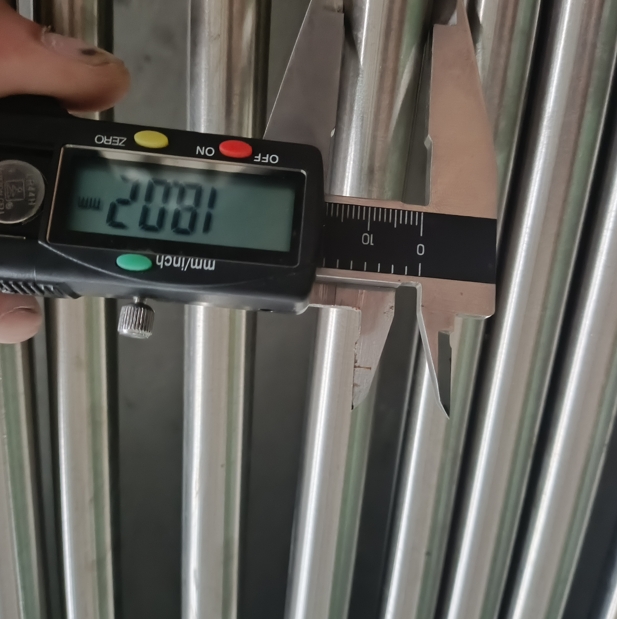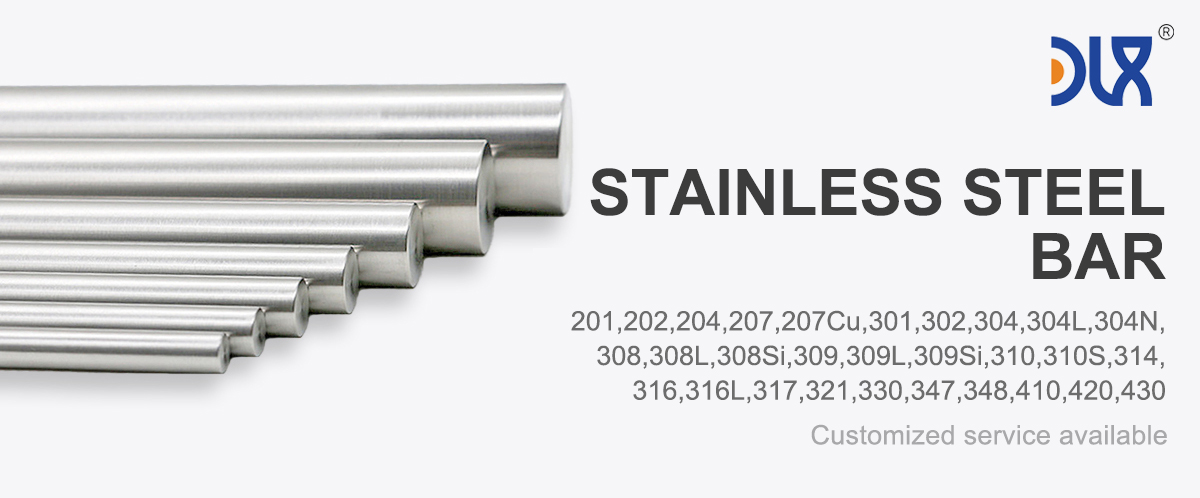
We take pride in offering our 440C high-hardness stainless steel rod, a game-changer for dental implant systems where precision and durability are non-negotiable. This isn’t just another material—it’s a high-performance alloy designed to tackle the toughest challenges in dental applications. With its exceptional hardness and wear resistance, our 440C stainless steel rod powers everything from abutment screws to drill bits, ensuring dental professionals can rely on tools and components that last. Our manufacturing process is dialed in to deliver consistent quality, so every rod meets the exacting standards of the dental industry.
Let’s break down what makes our 440C stainless steel rod stand out. This alloy is packed with 16-18% chromium and 0.95-1.2% carbon, giving it a unique edge in hardness—clocking in at 56-60 HRC after heat treatment. That’s higher than most medical-grade materials, making it perfect for components that face constant wear in the abrasive oral environment. Its tensile strength ranges from 760 to 1000 MPa, with a yield strength of 450-600 MPa, so it holds up under the mechanical stresses of dental procedures. The chromium content forms a protective oxide layer, offering decent corrosion resistance for short-term exposure to saliva and other fluids. We fine-tune our rods with precision grinding to ensure smooth surfaces, critical for reducing friction in dental tools.
For more details, pls directly contact us.
In dental implant systems, biocompatibility matters, but so does functionality. Our 440C stainless steel rod shines in applications where hardness trumps long-term implantation. Think abutment screws that secure crowns tightly or dental drill bits that cut through enamel with ease. Its high carbon content creates hard carbides, making it one of the toughest materials for wear-intensive tasks. While it’s not the go-to for permanent implants due to moderate biocompatibility, it’s ideal for temporary fixtures or tools where strength and edge retention are key. Our electropolishing process enhances surface smoothness, reducing bacterial adhesion and improving cleanability, which is a big win in sterile dental settings.
Zooming out to the dental industry, the market for implant systems is on fire, projected to hit $10 billion by 2030, driven by rising demand for cosmetic dentistry and an aging population needing replacements. Stainless steel, especially 440C, holds a strong niche for cost-sensitive applications. Trends like CAD/CAM integration are huge—our rods are easily machinable for custom designs, letting dental labs craft patient-specific components. Sustainability is also a hot topic; our 440C rods are 100% recyclable, cutting down on waste in dental manufacturing. Plus, their durability means fewer replacements, aligning with eco-conscious practices that clinics are prioritizing.
Comparison of Medical Stainless Steel Grades, Materials, and Applications
|
Grade |
Composition |
Key Properties |
Corrosion Resistance |
Biocompatibility |
Applications |
Advantages |
Limitations |
|---|---|---|---|---|---|---|---|
|
316L |
Fe (60-70%), Cr (16-18%), Ni (10-14%), Mo (2-3%), C (<0.03%) |
Tensile: 485-620 MPa, Yield: 170-290 MPa, Elongation: 40-50%, Hardness: 95 HRB |
Excellent (passive oxide layer, resists pitting) |
High, minimal ion release, rare Ni sensitivity |
Bone plates, screws, stents, hip stems, dental implants |
Cost-effective, machinable, fatigue-resistant |
Possible Ni sensitivity, heavier than Ti |
|
304L |
Fe (65-74%), Cr (18-20%), Ni (8-10.5%), C (<0.03%) |
Tensile: 485-550 MPa, Yield: 170-240 MPa, Elongation: 40-55%, Hardness: 92 HRB |
Good, less resistant to pitting than 316L |
Moderate, higher Ni release risk |
Temporary implants, surgical tools, guidewires |
Affordable, easy to form, widely available |
Limited for long-term implants due to corrosion |
|
17-4 PH |
Fe (70-78%), Cr (15-17.5%), Ni (3-5%), Cu (3-5%), C (<0.07%) |
Tensile: 930-1100 MPa, Yield: 725-860 MPa, Hardness: 30-44 HRC |
Very good, but less than 316L in saline |
Good, but less biocompatible than 316L |
Load-bearing implants, surgical instruments |
High strength, heat-treatable, durable |
Complex processing, less corrosion-resistant |
|
420 |
Fe (80-90%), Cr (12-14%), C (0.15-0.4%) |
Tensile: 700-950 MPa, Yield: 340-450 MPa, Hardness: 45-50 HRC |
Moderate, prone to pitting in body fluids |
Moderate, not ideal for long-term implants |
Cutting tools, temporary pins, dental drills |
High hardness, wear-resistant, sharpenable |
Poor corrosion resistance for permanent use |
|
440C |
Fe (78-85%), Cr (16-18%), C (0.95-1.2%) |
Tensile: 760-1000 MPa, Yield: 450-600 MPa, Hardness: 56-60 HRC |
Moderate, better than 420 but less than 316L |
Limited, high carbon affects biocompatibility |
Surgical blades, high-wear tools |
Extremely hard, excellent edge retention |
Not suitable for long-term implants |
|
F138 (316LVM) |
Fe (60-70%), Cr (17-19%), Ni (13-15%), Mo (2.25-3.5%), C (<0.03%) |
Tensile: 490-690 MPa, Yield: 190-300 MPa, Elongation: 40-50%, Hardness: 95 HRB |
Superior, optimized for medical use |
Excellent, lowest ion release, vacuum-melted |
Orthopedic implants, cardiovascular stents |
Enhanced purity, top biocompatibility |
Higher cost than standard 316L |
|
303 |
Fe (65-75%), Cr (17-19%), Ni (8-10%), S (0.15-0.35%) |
Tensile: 500-620 MPa, Yield: 240-290 MPa, Elongation: 35-50%, Hardness: 90 HRB |
Moderate, sulfur reduces corrosion resistance |
Moderate, not ideal for permanent implants |
Machined components, non-implant devices |
Excellent machinability, cost-effective |
Not suitable for long-term implants |
|
Nitronic 60 |
Fe (60-70%), Cr (16-18%), Ni (8-9%), Mn (7-9%), N (0.08-0.18%) |
Tensile: 620-793 MPa, Yield: 345-414 MPa, Hardness: 95-100 HRB |
Very good, resists galling and wear |
Good, but less studied for implants |
Wear-resistant implants, joint components |
High wear resistance, galling resistance |
Limited medical use, higher cost |
For more details, pls directly contact us.
But it’s not all smooth sailing. Corrosion can be a concern in the moist, acidic oral environment, with studies showing stainless steel tools can face pitting if not properly treated. That’s why we’ve doubled down on surface treatments like passivation to boost corrosion resistance, extending the lifespan of our rods. Another trend is the push for bioactive coatings to improve tissue integration, which we’re exploring to complement 440C’s strengths. Regulatory hurdles are tightening too—standards like ISO 13485 demand rigorous testing for dental materials. Our rods are tested to meet ASTM A276 and AISI standards, ensuring compliance and reliability in every batch.
Applications for our 440C stainless steel rod are diverse within dental implant systems. It’s a star in abutment screws, where its hardness ensures secure fastening without stripping under torque. Dental drill bits made from our rods maintain sharp edges, cutting through tough materials like enamel or dentin without dulling. Temporary implant posts benefit too, offering stability during healing before permanent solutions take over. We’ve also seen growing use in orthodontic tools, like wire cutters, where 440C’s wear resistance outperforms softer alloys. Beyond clinical use, dental labs rely on our rods for prototyping custom components, thanks to their machinability and strength.
Comparing ourselves to the market, our 440C stainless steel rod stands out for its quality and customization. We source the purest raw materials, minimizing impurities that could weaken components. Our heat treatment process is optimized to maximize hardness without sacrificing toughness, giving our rods an edge in high-wear scenarios. Unlike generic suppliers, we offer tight tolerances—down to ±0.002 inches—ensuring every rod fits perfectly into your designs. Our in-house testing, including Rockwell hardness and microstructure analysis, guarantees consistency that dental manufacturers can trust.
Customization is where we really shine. Need a specific diameter for a unique drill bit or a polished finish for a low-friction screw? We deliver tailored solutions, often within a week, keeping your production on track. Our surface treatments, like mirror polishing, reduce friction and improve aesthetics, which is a big deal for visible dental components. Cost-wise, our 440C rods are a steal compared to pricier alternatives like cobalt-chrome, without compromising on performance. We also provide technical support, with our material experts helping you integrate our rods into complex systems, saving you time and R&D costs.
Looking at the bigger picture, the dental industry is leaning into digital dentistry and minimally invasive techniques, and our 440C stainless steel rod is ready for it. Its compatibility with CNC machining and 3D printing workflows makes it a favorite for labs pushing for precision. We’re also investing in next-gen coatings to enhance corrosion resistance, addressing the 10-15% failure rate linked to material degradation in dental tools. With healthcare costs rising, our rods offer a budget-friendly option that doesn’t skimp on quality, making advanced dental care more accessible.
Comparison Parameters Table
| Parameter | 440C Stainless Steel | 316L Stainless Steel | Titanium (Ti-6Al-4V) | Cobalt-Chrome (Co-Cr) |
|---|---|---|---|---|
| Density (g/cm³) | 7.7-7.8 | 7.9-8.0 | 4.4-4.5 | 8.3-9.2 |
| Elastic Modulus (GPa) | 200 | 193 | 110-114 | 210-240 |
| Yield Strength (MPa) | 450-600 | 170-290 | 800-900 | 450-1000 |
| Tensile Strength (MPa) | 760-1000 | 485-620 | 900-1000 | 900-1200 |
| Hardness (HRC) | 56-60 | 95 HRB (~20 HRC) | ~36 HRC | 30-40 HRC |
| Corrosion Resistance | Moderate (good in dry conditions) | Excellent (passive oxide layer) | Superior in body fluids | Very good, but ion release risk |
| Biocompatibility | Moderate, suited for temporary use | High, minimal Ni sensitivity | Excellent, low reactivity | Good, but Co ion concerns |
| Cost | Low | Low | Medium | High |
| Common Applications | Dental screws, drill bits, tools | Bone plates, stents, dental implants | Dental implants, crowns | Dental bearings, crowns |
| Wear Resistance | Excellent | Moderate | Good | Very good |
In the end, our 440C high-hardness stainless steel rod is built for dental professionals who demand reliability and precision. It’s not just about cutting or fastening—it’s about enabling better outcomes for patients, from routine fillings to complex implant surgeries. We’re committed to pushing the boundaries, whether it’s through tighter tolerances or innovative finishes. As the dental field evolves, we’re right there, delivering materials that keep you ahead of the curve. Our 440C rods are the backbone of countless dental systems, and we’re excited to keep powering the future of smiles.
For more details, pls directly contact us.
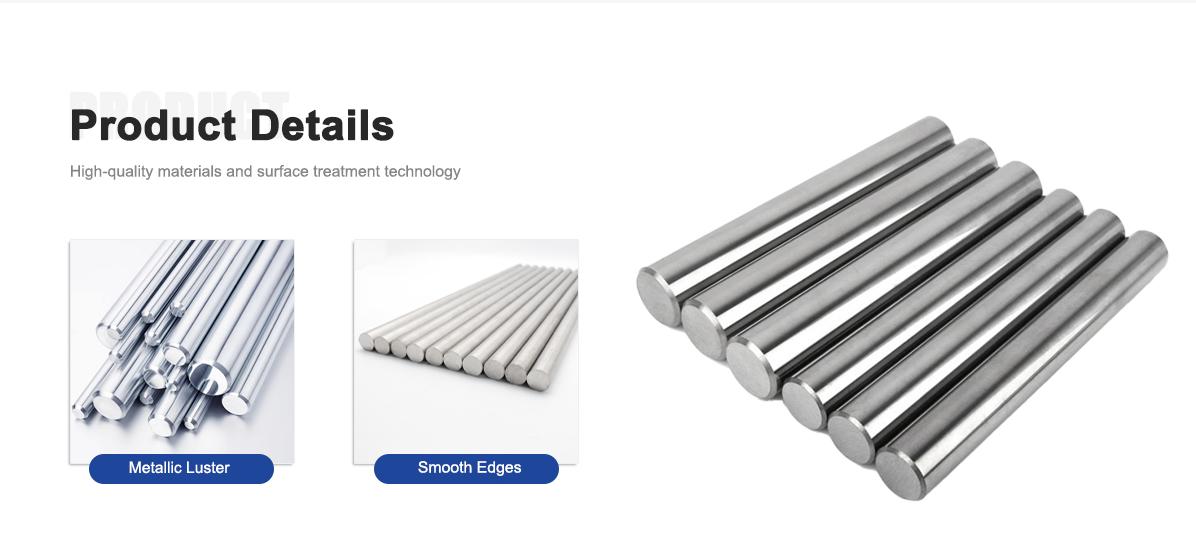
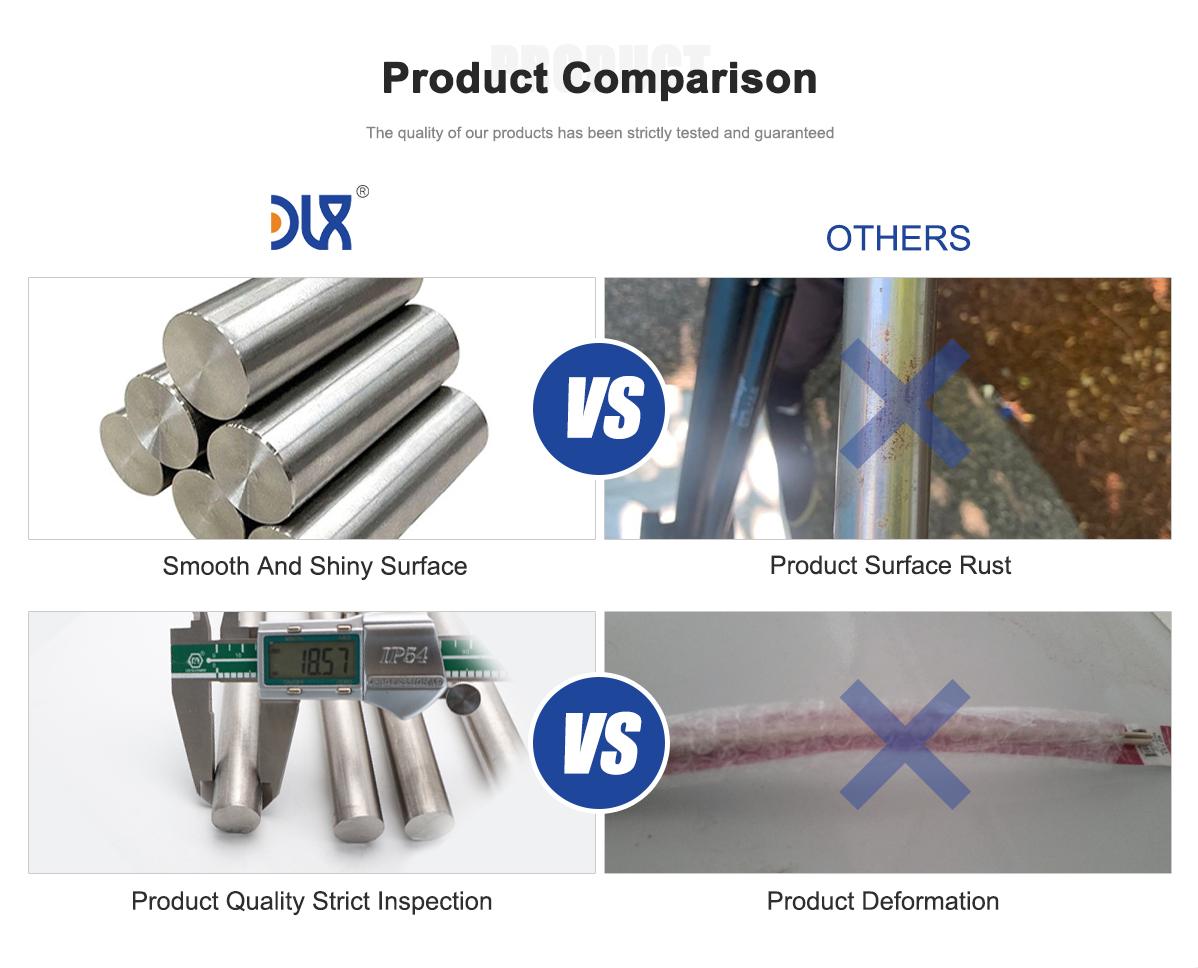
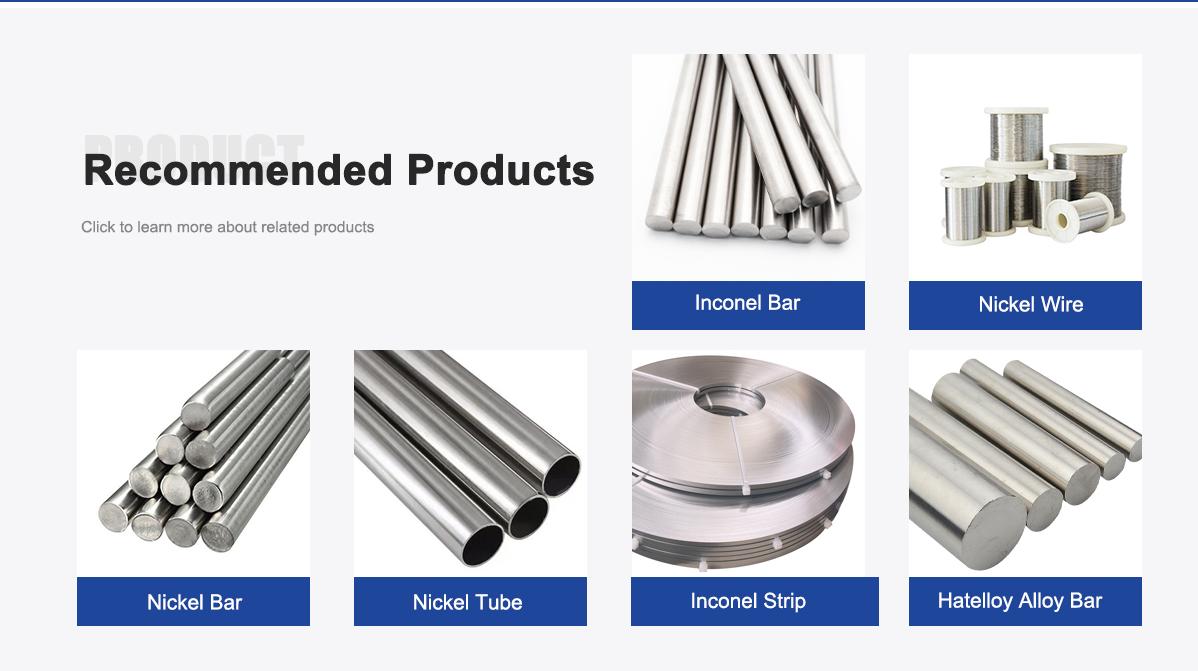
About Us:
Our 12,000㎡ factory is equipped with complete capabilities for research, production, testing, and packaging. We strictly adhere to ISO 9001 standards in our production processes, with an annual output of 1,200 tons. This ensures that we meet both quantity and quality demands. Furthermore, all products undergo rigorous simulated environment testing including high temperature, high pressure, and corrosion tests before being dispatched, ensuring they meet customer specifications.
For all our clients, we offer timely and multilingual after-sales support and technical consulting, helping you resolve any issues swiftly and efficiently.
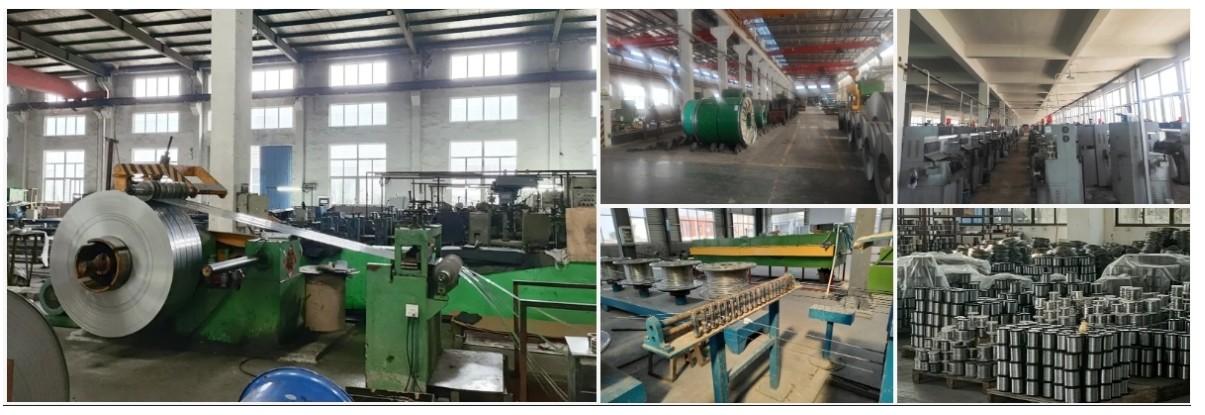
Client Visits
Building Stronger Partnerships

We support all kinds of testing:
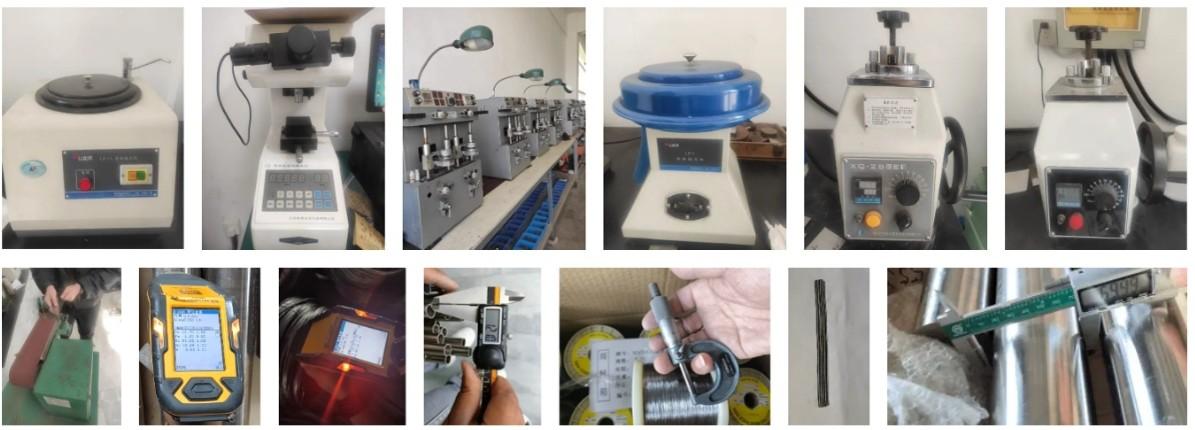

FAQs:
-
What is the composition of 440C stainless steel?
440C stainless steel contains iron (78-85%), chromium (16-18%), carbon (0.95-1.2%), manganese (≤1%), silicon (≤1%), and small amounts of molybdenum, phosphorus, and sulfur. -
What are the key mechanical properties of 440C stainless steel for dental implants?
It offers a tensile strength of 760-1000 MPa, yield strength of 450-600 MPa, hardness of 56-60 HRC, and elongation of 10-15%, ideal for high-wear dental applications. -
How is 440C stainless steel used in dental implant systems?
It’s used for components like abutment screws, dental drill bits, and temporary implant fixtures due to its hardness and edge retention in precision dental tools. -
What makes 440C stainless steel resistant to wear in dental applications?
Its high carbon content and chromium combine to form hard carbides and a protective oxide layer, ensuring durability against abrasive forces in oral environments. -
What are current industry trends for 440C stainless steel in dental implants?
Trends include surface polishing for smoother finishes, integration with CAD/CAM for custom dental parts, and pairing with coatings to enhance corrosion resistance. -
Is 440C stainless steel biocompatible for dental implants?
It has moderate biocompatibility, suitable for temporary implants or tools, but less ideal for permanent implants due to potential ion release over time. -
What advantages does 440C stainless steel have over other materials in dental systems?
It provides superior hardness and wear resistance compared to 316L or titanium, making it perfect for high-precision, high-wear dental components at a lower cost. -
How does 440C stainless steel align with sustainability in dental manufacturing?
Its durability reduces replacement frequency, and it’s fully recyclable, supporting eco-friendly practices in dental production with minimal material waste.

